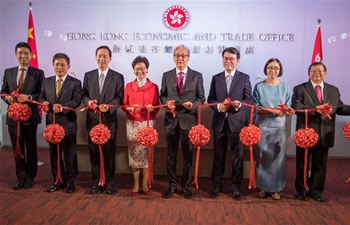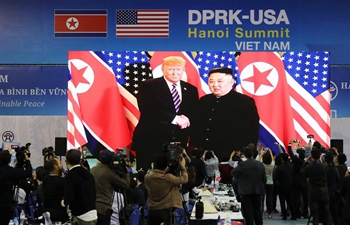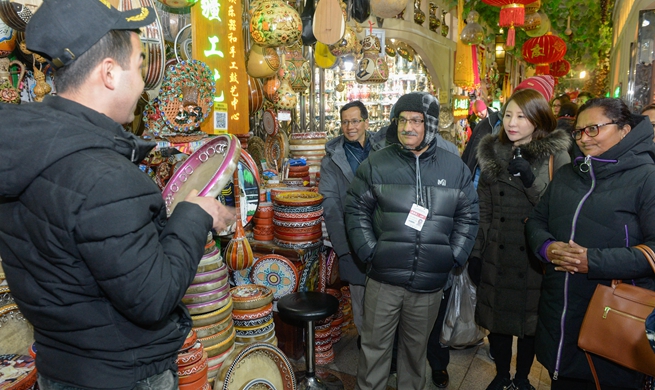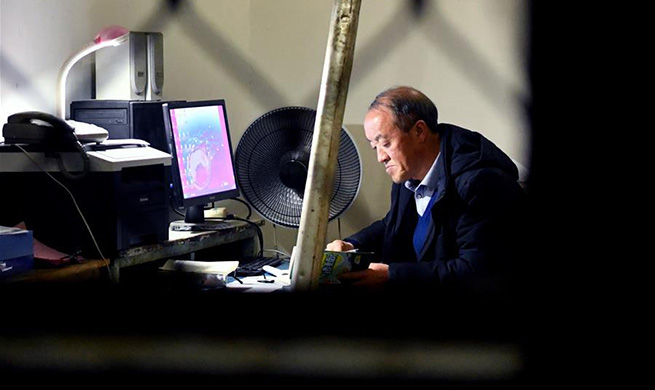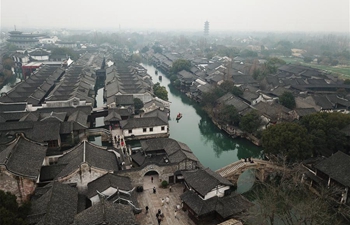by Dana Halawi
BEIRUT, March 1 (Xinhua) -- Lebanese analysts said that the United States' continuous diplomatic pressure against Hezbollah will neither have an impact on the party nor on Lebanon.
The U.S. Ambassador to Lebanon Elizabeth Richard visited Lebanese Prime Minister Saad Hariri earlier in Feb. to express their concerns over the growing role of Hezbollah in the new cabinet.
"I do not think this pressure will work," Hilal Kashan, chair of the Political Studies Department at the American University of Beirut, told Xinhua, adding that the problem of Hezbollah is beyond the control of Hariri or any other national leader in the country.
"The Hezbollah is part of the government and they are legislators. Applying sanctions on Hezbollah means sanctioning on Lebanon. I do not think the U.S. is interested in doing that," he said.
"Hezbollah is a regional power. If Americans really want to deal with Hezbollah, they have to do it through Iran, but not through Hariri," he added.
The Hezbollah controls three of the 30 ministries in Hariri's new cabinet, including the Health Ministry which has the fourth-largest budget in the state.
Established in 1982 by Iran's Revolutionary Guards, Hezbollah last fought a major war with Israel in 2006.
The party has expanded regionally through deployments of fighters in other conflicts, including the war in neighboring Syria where it has fought in support of Syrian President Bashar al-Assad.
Moreover, Hezbollah won more than 70 of the 128 seats in Lebanese parliament in an election held last year while Hariri, who is backed by the West, lost more than one third of his MPs.
Lebanon's political analyst Rafik Nasrallah told Xinhua that the U.S. has failed to prevent Hezbollah from participating in the government and in the parliamentary elections, so it is trying to apply direct pressure on the party to negatively impact its role on the governmental and political level.
"The U.S.' campaign is in favor of Israel and it is part of the its policy of attacking Iran," he said, adding that this does not mean that the U.S. stance will have any negative impact on Hezbollah or Lebanon.
The U.S. is not the only country thriving to impose heavy pressure on Hezbollah.
The British Home Secretary Sajid Javid on Monday announced the decision to designate the entirety of Hezbollah as a terrorist group.
"Both the U.S. and Britain know very well that if their policies in Lebanon cross the red lines, it will have a negative impact on security in the country," he said.
"They both know that the Lebanese government will not stop dealing with Hezbollah because this will cause conflict which could possibly escalate into a civil war in Lebanon," he added.
British Foreign Secretary Jeremy Hunt maintained that the Britain is a "staunch supporter" of a stable and prosperous Lebanon.
Nasrallah believes that the U.S. and the Britain will continue to attack Hezbollah diplomatically for the time being.





